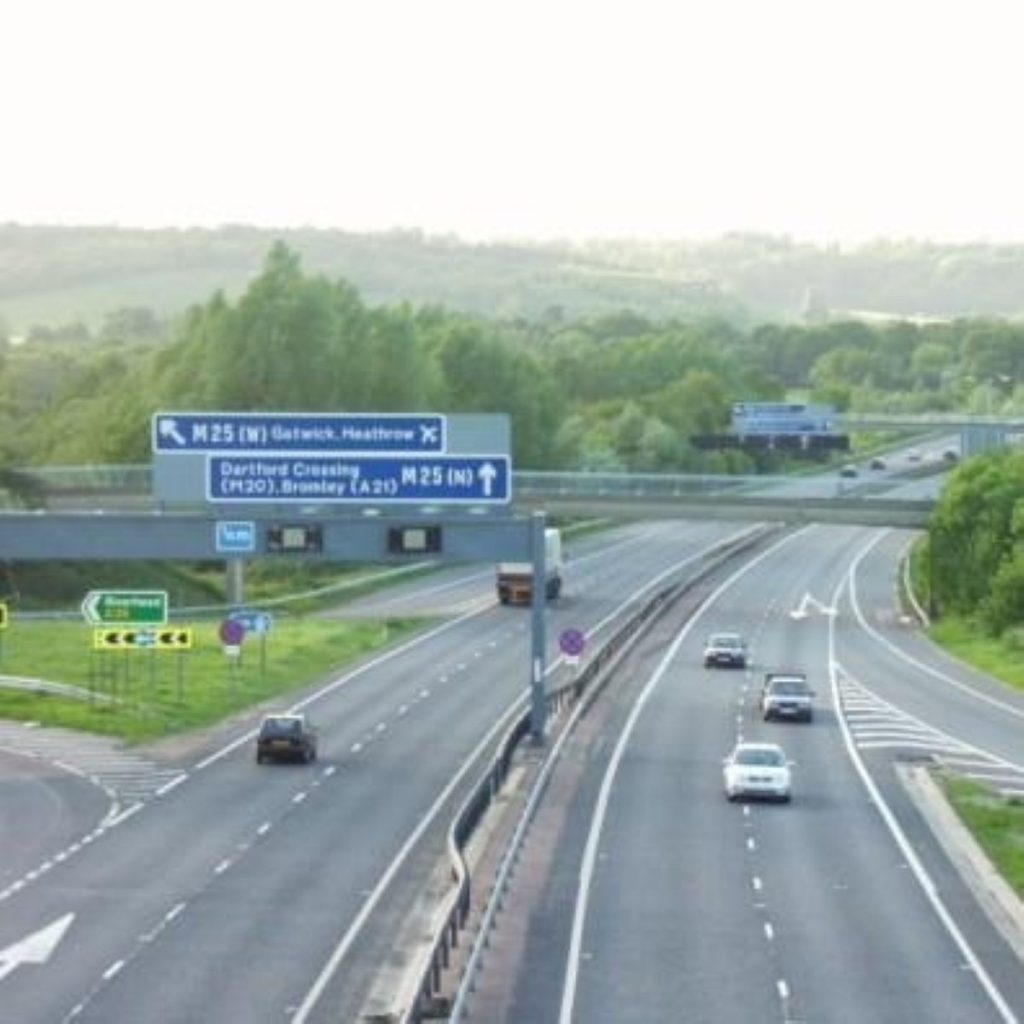Road widening plans outlined
The Transport Secretary has announced an extensive programme of road widening, which includes the addition of a fourth lane to many sections of the M25.
Delivering a statement to the Commons today, Alistair Darling unveiled a significant number of road improvement schemes.
These include a pilot to allow the use of the M42 hard shoulder during peak hours and various other projects along parts of the M60, M1, M62, M18, M27, M25, A19 and A12.
Environmental groups have expressed deep concern at the plans, which they warn will do nothing in the long term to cut down on traffic congestion on UK motorways.


But road organisations have welcomed the measures, insisting on the need to expand capacity.
Addressing MPs this lunchtime, Mr Darling also announced expansion schemes on a number of roads including the A12, M11, M62, A1(M) and M18.
Crucially, most of the remaining three-lane sections of the M25 are to be widened to four lanes, and the M1 will also be widened to four lanes between the M25 and Milton Keynes.
However, the Secretary of State rejected a number of proposals that he said would have damaged beautiful or sensitive areas, such as the Arundel Bypass and the Worthing Tunnel. He said that he is seeking alternative solutions from the Highways Agency for these.
In respect of public transport, the Secretary of State insisted that much work was already underway, promising that £33bn would be invested in rail over the next ten years.
More money would be given to local authorities to improve local transport, and in particular £1bn over the next seven years would be available for improvements to local transport in the West Midlands, Mr Darling said.
And he confirmed that in the next four years all lorries using UK roads would have to pay charges in an attempt to encourage them off the roads at peak times.
However, a reduction in fuel duty would mean that hauliers would not lose out.
Further, the Secretary of State said that ‘now is the right time’ to examine how making use of modern technology could improve use of road space in the future.
‘In the next 4 years, we’ll be introducing charging for all lorries using UK roads based on the distance they travel. Accompanied by a reduction in fuel duty, overall the UK haulage industry won’t pay more. And this would allow us in the future for example, by varying charges, to encourage lorries to use motorways at off peak times’, the cabinet minister stated.
‘But clearly there’s a world of difference between a scheme for 430,000 lorries and one for 26 million cars. No country in the world has done anything on such a scale before. And technically this is an entirely different proposition to congestion charging in London, for example, where a charge is paid to drive within a boundary.
‘There are many issues that need to be addressed – such as the protection of privacy and whether such a scheme could work technically. Which is why the time has come to set up a feasibility study to investigate these issues in detail’.
Speaking ahead of the announcement, Friends of the Earth denounced the expected measures on road widening as ‘sticking plaster solutions’.
Spokesman Roger Higman said that plans to widen key UK motorways would do little more than offer temporary relief in the battle against congestion.
And Mr Higman called for a greater push on road charging schemes in order to cut down on unnecessary car use.
‘Yet again the Government is throwing billions of pounds in a futile gesture to widen the motorways to relieve congestion when all the evidence suggests that we get at least three years of congestion-free motoring and then the traffic builds up, and we have more pollution and congestion in the future’.
He insisted on the need to concentrate more energetically on road charging proposals.
For its part, the Freight Transport Association has welcomed the Government’s plans to widen various stretches of the motorway network.
According to the FTA, 60% of freight in Britain is currently moved by the motorway network.
The AA similarly welcomed the proposed new investment in the road network.
AA spokesman Simon Woodings remarked: ‘Widening schemes, projects such as this, should have been done many years ago under successive governments.’
‘What we face now is continual gridlock and congestion on a daily basis. The CBI estimate that £20bn a year is lost in business arrangements, business meetings, wasted journeys. It is time that these motorways at key pinch points were widened.’
Mr Woodings expressed caution about plans for road tolls, saying: ‘In theory it is workable. But you have to remember that there has to be massive investment on a technological basis, you would also need the back up in terms of office staff, administration staff to supervise the scheme.’
‘We have already seen from the London congestion charging scheme that errors have been made.’
‘The current scheme from the surveys we have conducted seems to be the fairest – that the polluter pays, the more you travel, the more you pay for your fuel.’

